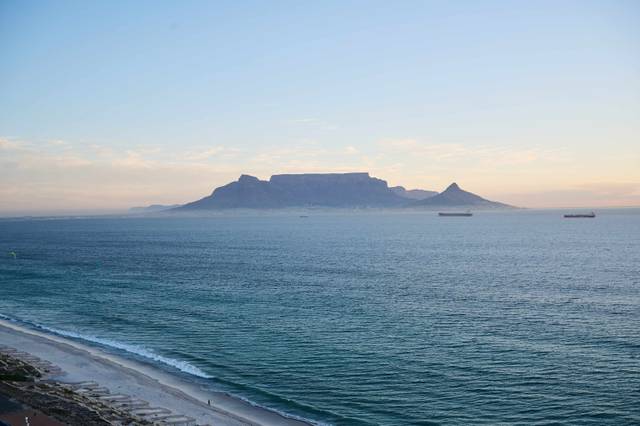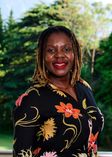
Scholar Stories
World Oceans Day is a reminder of our oceans' very pressing needs
Oceanographer and Mandela Rhodes Scholar Joshua Mirkin (South Africa & University of Cape Town, 2020). Joshua has a master’s degree in applied Ocean Sciences. He gave us his take on the importance of World Oceans Day.
Why is it important for us to commemorate World Oceans Day?
Oceans cover more than 70% of our planet's surface and produce roughly half the oxygen we breathe, yet we so rarely stop to think about the impact we are having on it. Barring a few coastal communities, the ocean, while absolutely vital to our survival, sadly does not play a prominent enough role in our daily lives.
This can, at times, allow us to disconnect from our ocean, seeing its problems as separate from our own. World Oceans Day is a reminder of our oceans' very pressing needs, of the ways human activity is affecting it and as a rallying point around which to promote ocean health.
What was your Masters thesis on?
My Masters focused specifically on determining the amount of carbon dioxide that is transported from the surface into the deep ocean by phytoplankton (the single celled 'trees' of the ocean) near Larsen C ice shelf, an area in the Western Weddell Sea of Antarctica. To do this, I looked at the ocean nitrogen (N) cycle, using isotopic analysis to trace the N through the system, and calculate how much of it has been removed from the ocean’s surface. Using this information, combined with our knowledge of the ratio at which carbon and nitrogen occur in phytoplankton, I could infer the amount of carbon removed from the ocean’s surface.
What does an oceanographer do on a day-to-day basis?
An oceanographer’s daily life similar to that of many academics, in that it varies depending on specialisation and research project. My daily life involved participating in research cruises to collect samples, followed by analysing, interpreting, and writing up the results. One activity I made sure to regularly include, especially while writing, was to sit by the ocean, allowing me to continue to feel connected to it, even if my attention was focused elsewhere.
What has been the highlight of your career so far?
The highlight of my career so far has been the research cruises. They have allowed me to experience environments, such as Antarctica and some sub-Antarctic islands, that I never dreamed possible. My journey to Antarctica stands out to me for how harsh and inhospitable the environment was. It was evident that this place, with its almost complete lack of plants or even exposed rock, is completely unsuitable for human survival.
What really struck me, however, was despite how human life in Antarctica would rapidly perish without external support, huge numbers of large animals, including seals, whales, dolphins, penguins, and sea birds, thrive. Experiencing the harshness of this environment, and yet seeing this abundance of life that has adapted to it really struck me and left me in awe of the undeniable beauty, diversity, and resilience of our planet.
How did your journey as a Mandela Rhodes Scholar contribute to your career as an oceanographer?
The Mandela Rhodes Foundation radically transformed my relationship to oceanography. It helped progress my career by allowing me to complete my Masters, but more foundationally, changed the way I interact with those within and outside my field. It facilitated my development towards a connection-based approach to conveying my work, towards fostering communities, and towards the transformative power of vulnerable engagement. I have found that embracing these ways of being, not just within academia, but also in my personal life, has allowed me and others to form a deep and genuine connection to the work we are doing by communicating.
What are you currently working on?
Currently, I am taking some time to truly connect with nature, myself, and those around me. I spend extended periods by oceans, mountains, lakes, rivers, and forests, cultivating the deep connection I have with the world. I have also been spending a considerable amount of time with people outside of my field, communicating my work in the vulnerable and connection-based approach developed during my time as a MRF scholar. I have found that this has not only allowed people who would never usually have interacted with my work to connect to it but has also significantly deepened my connection to it.









